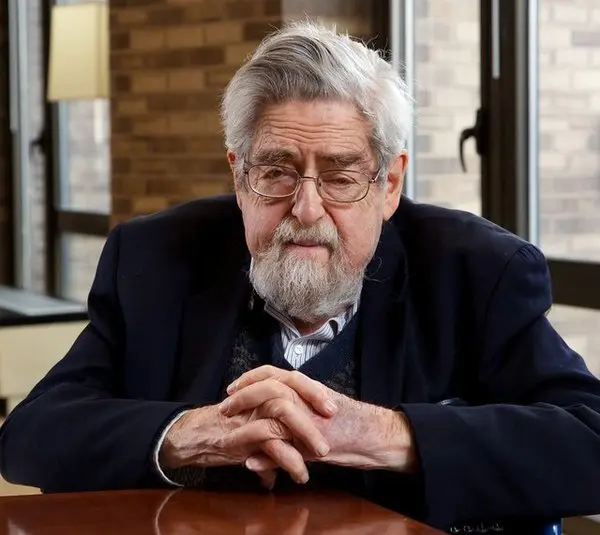
Louis Nirenberg
Louis Nirenberg
(born 28 February 1925) is a Canadian-American mathematician, considered one of the most outstanding mathematicians of the 20th century.
He has made fundamental contributions to linear and nonlinear partial differential equations (PDEs) and their application to complex analysis and geometry. His contributions include the Gagliardo–Nirenberg interpolation inequality, which is important in the solution of the elliptic partial differential equations that arise in many areas of mathematics, and the formalization of the bounded mean oscillation known as John–Nirenberg space, which is used to study the behavior of both elastic materials and games of chance known as martingales. His other achievements include the solution to long-standing problems of Weyl and Minkowski, relating to the embedding of a 2-sphere and curvature, respctively; the theory of pseudo-differential operators initiated along with Joseph J. Kohn, the Newlander-Nirenberg theorem of complex structures, Vanishing Mean Oscillation (VMO), the symmetries of solutions of PDEs along with Gidas and Ni, among many others.
Nirenberg's work on PDEs has been described as "about the best that's been done" (as of 2002) towards solving the Navier–Stokes existence and smoothness problem of fluid mechanics, which is a Millennium Prize Problem.[1]
Nirenberg was born in Hamilton, Ontario, and attended Baron Byng High School. He studied as an undergraduate at McGill University, completing there his B.S. in both mathematics and physics in 1945. He obtained his doctorate from New York University in 1949 under the direction of James Stoker. He subsequently became a professor at the Courant Institute of Mathematical Sciences at New York University. He was also conferred the degree of Doctor of Science, honoris causa, at the University of British Columbia in 2010.
He has received many honours and awards, including the Bôcher Memorial Prize (1959), the Jeffery–Williams Prize (1987), the Steele Prize (1994 and 2014), the National Medal of Science (1995), and was the inaugural recipient of both the Crafoord Prize (1982, shared with Vladimir Arnold) and the Chern Medal (2010). In 2015 he was awarded the Abel Prize along with John Nash. He is a fellow of the American Mathematical Society.
No items yet!
No items yet!
No items yet!